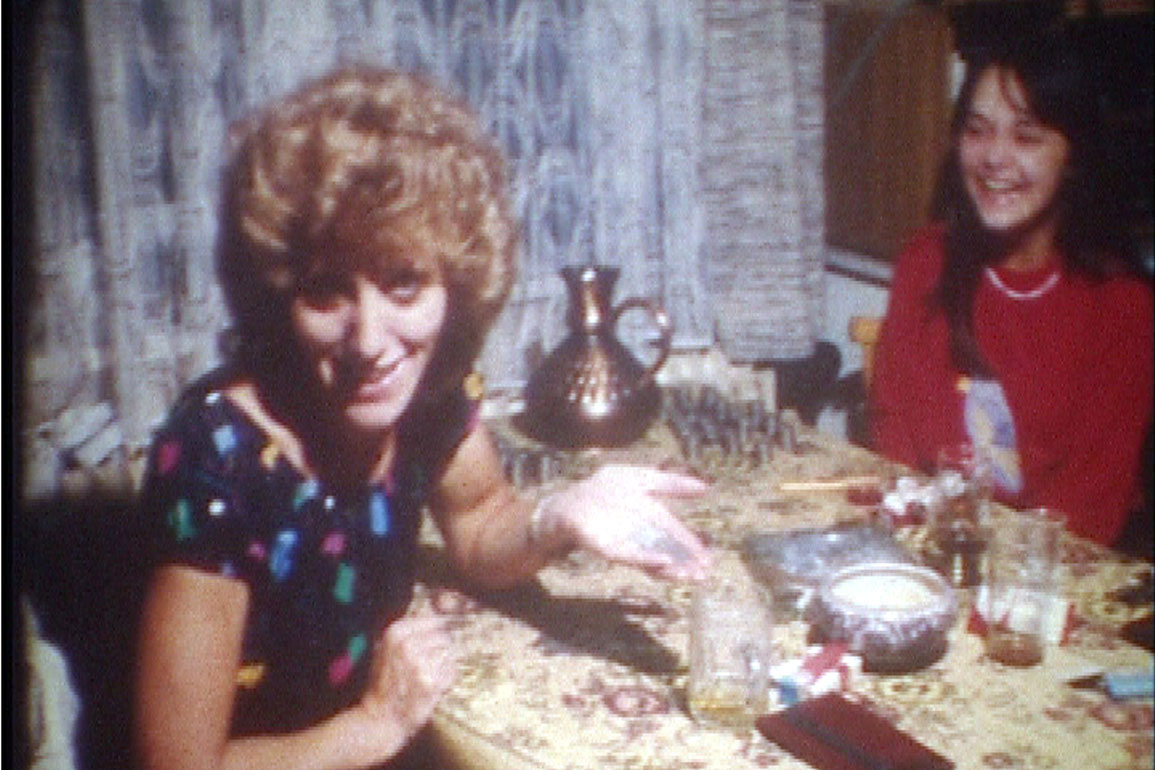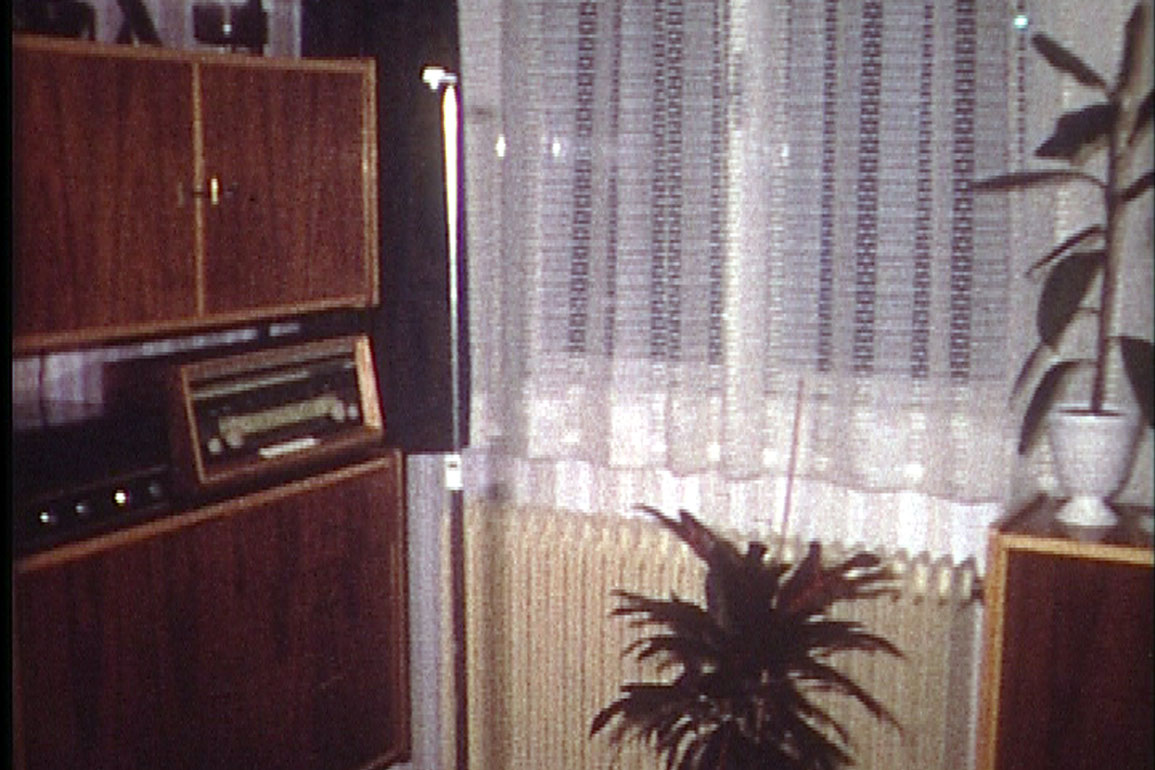A million in debt is normal, says my grandfather
The film tells the story of the filmmaker´s family: her father´s struggle to save the furniture store inherited from her grandfather and the consequences of the inevitable bankruptcy for the family.
(production note)
Normality in the 70s: The audiovisual memory industry and its amateur-filmmaker cohorts produced vast numbers of images depicting the economic boom and petit bourgeois families who presume they´re happy: vacations at the sea, car excursions into the Alps while wearing traditional clothes, at home there´s the built-in cabinet with a color TV. Dad´s usually the one operating the camera. Everything could have been so nice, but it all goes wrong in the end: The carpenter´s shop inherited from grandpa is in the red, competition with mass-produced goods delivers the company´s death blow. The family´s embroiled in a crisis, and finally its head crumbles under the strain. Normality has become unbearable.
At first glance Gabriele Mathes´ found-footage film merely tells the story of a family which ends tragically. While an unemotional narrator creates a depressing, somewhat biographical and photographically precise portrait in words, the Super-8 images capture an irreducible exterior which unfolds not only in the literary description of subjective images of memory: fragments of a public micro-history of the economy. Images and language contaminate each other in the tangential editing, and Andrea Sodomka´s soundscape leads us into the audiovisual fracture in time with painful silence. Unlike so many ironic home-movie samplers, Mathes takes her material seriously as a symptom. What´s shown, what indicates the non-visible, what has been lost, and what has been saved. And, just possibly, something has survived in the washed-out, emotional images, where language, and mourning, was unable to reach: a moment of suspicion, or a moment of happiness. But happiness might have flared up at a place no one planned or expected.
(Michael Palm)
Diagonale Preis Innovatives Kino 2006 - Jury-Begründung (Award)
Jury:
Sandro Droschl (Curator "Kunstverein Medienturm", AT)
Angela Haardt (Curator for Media Art, DE)
Michael Palm (Filmmaker, Filmtheorist, AT)
Jury statement / CPH:DOX 06, Int. Documentary Film Festival Copenhagen (Award)
Christian Cargnelli, Falter / Wien (Critique)
un million de dettes cŽest normal, dit mon grand-père (texte français)
La normalité dans les années soixante-dix : lindustrie audiovisuelle du souvenir, avec ses cohortes de cinéastes amateurs, produit à la pelle des images du boom économique et dun supposé bonheur familial petit-bourgeois vacances à la mer, excursions motorisées dans les Alpes en robe folklorique et culotte de cuir, à la maison on a une armoire encastrée avec téléviseur couleur... En général, cest papa qui filme. Ça aurait pu être si bien, mais il y a un hic : la menuiserie héritée du grand-père senfonce dans le rouge, la concurrence et sa production de masse donnent le coup de grâce à lentreprise. La famille plonge dans la crise jusquà ce que le père finisse par ployer sous le fardeau. La normalité nest pas supportable.
Le film de found footage de Gabriele Mathes nest quà première vue une histoire de famille qui finit mal. Tandis quune voix féminine esquisse un tableau angoissant, à tonalité biographique et dune grande précision photographique, les images en super 8 captent un extérieur implacable qui fait sens au-delà même de la description littéraire des souvenirs subjectifs : fragments pour une micro-histoire publique de léconomie. Dans le montage tangentiel, images et langage se contaminent mutuellement, les tableaux sonores dAndrea Sodomka nous emportent en un douloureux pianissimo dans la fissure audiovisuelle du temps. A la différence de tant de collages de home-movies volontiers railleurs, Mathes prend son matériau très au sérieux dans sa portée symptomatique. Quest-ce qui se révèle, que la non-visibilité permet de déviner, qui se perd, qui est sauvegardé ? Et peut-être les images délavées, abîmées ont-elles conservé quelque chose que le langage, le travail du deuil ne pouvaient atteindre ; peut-être un moment de soupçon, peut-être un moment de bonheur. A moins que le bonheur nétincelle furtivement à un endroit que personne navait prévu, que personne nattendait. (Michael Palm)
Traduction: Françoise Guiguet
Eine Million Kredit ist normal, sagt mein Großvater
2006
Austria
22 min


